8 Ways to Produce a Soft Background in Your Photos
Wide Aperture for a Soft Background
If you’ve played around with aperture much, you’ll know by now that,
the wider the aperture, the shallower the depth of field. This, in turn,
determines how blurred the photo is, after all, that’s all a soft
background is – an attractive blur.
So, the wider you set your aperture, the softer your background will
be but you need to be sure that the whole of your subject’s face is in
focus, or at the very least their eyes, otherwise the entire photo will
appear soft instead of just the background.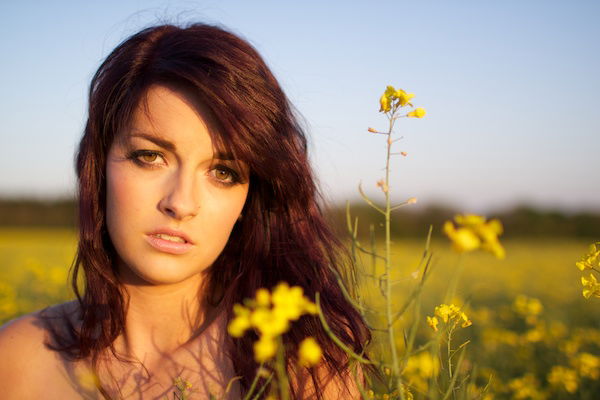
Get Close
Here’s an extract from my tutorial on depth of field which sums up exactly what effects can be created by bringing your lens closer to the subject:
The best way to demonstrate this is not with a diagram but with your own hand.
Take your arm and stretch it out in front of your face with your hand as far as you can reach.
Looking at your hand, you’ll notice that you can still work out a lot of the detail behind it, without moving your eyes away. Now, gradually move your hand closer to your face, focusing on it throughout. You’ll notice your peripheral vision becoming more and more out of focus.
The same effect occurs with a camera lens.
Distant Background
The further away your background is, the less in focus it will appear which, as we know, creates a soft background.
You need to consider just how soft you want the background to be; if it’s too far away, it can start to blur into insignificance.
Combining a distant background with a few other techniques on this list
will be a lot more effective and aesthetically pleasing – you should be
able to make out what’s going on in the background without providing
enough information to distract from the subject.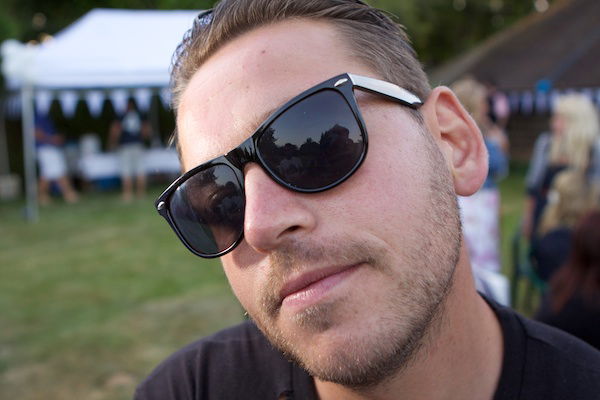
Zoom In
If you remember back to my tutorial on focal length,
you’ll know that portrait lenses are usually in the mid-telephoto range
of 70-105mm. This is because of the way they compress the perspective
of a scene, making the background appear closer.
The beauty of this is that you can have your background relatively far
away, shoot nice and close to the subject (on a long focal length with a
wide aperture) and you’ll still get a soft background without it
appearing too distant.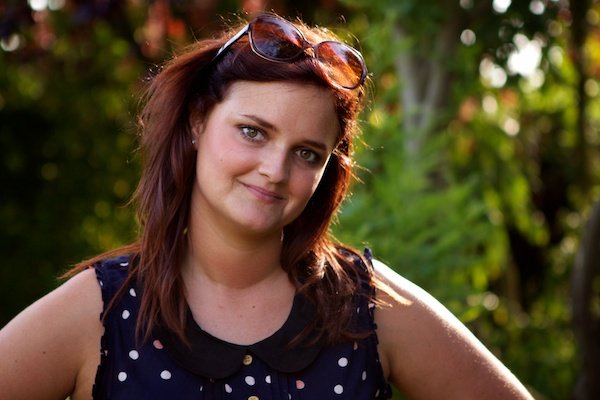
Soft Lighting
Whether you’re in a studio or outside in the garden, if you want a soft background, you need soft lighting.
As a general rule, this means no direct light from the sun or from the flash on your camera.
My favourite time to shoot is during the evening as the camera’s sensor
isn’t trying to compete with itself to correctly expose a certain part
of the photo over another.
This produces a much greater dynamic range with more detail in the
background colours. Soft lighting will also flatter your subject’s
features and skin tone, resulting in a more even exposure.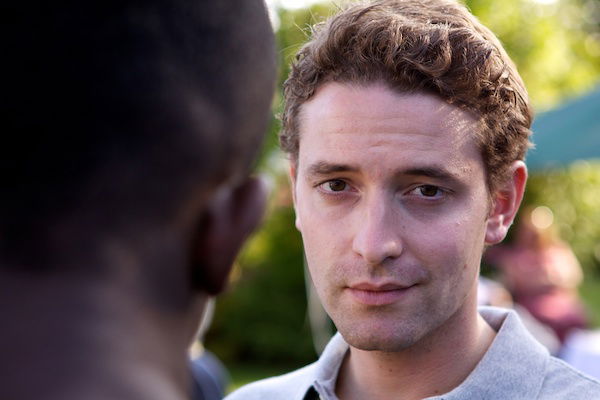
Sharp Contrast
If you really want to emphasise how soft the background is, contrast it with an exceptionally sharp foreground.
Applying this technique makes the background a lot more obvious by
comparison as the subject in the foreground seems to sit on top of the
background (provided there’s enough distance between the two of them).
The photo below was shot at f/1.4 which provides an incredibly shallow
depth of field but, because the contrast between sharp and blurred is so
apparent, the entire subject appears to be in much deeper focus.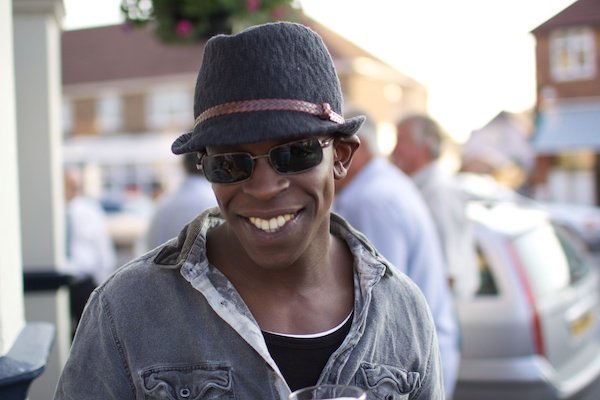
Bokeh Background
Soft backgrounds are all well and good but, if it’s a blur of concrete, there’s not exactly much to look at.
To make sure your background is equally important in terms
of aesthetics, choose a background area in which you’ll have the
opportunity to play around with the different colours and lights.
My favourite technique to use involves allowing small pockets of light
to pass through the background so that they create a circular bokeh
shape when captured by the camera.
This is incredibly easy to do and is a really subtle way of taking
something that would usually have been boring and making it much more
interesting – check out the photo below.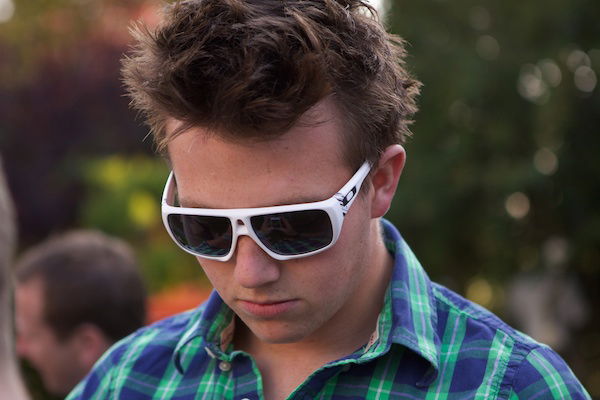
Shoot Into The Sun
There are many advantages of shooting into the sun. In fact, I’ve written a whole tutorial on it but,
in terms of softening your background, shooting into the sun produces
lens flare that can cast a soft light over the whole of your photograph.
Clearly, this doesn’t just soften the background; it softens the
foreground too. This can, however, be very effective, especially seeing
as these shots are usually taken in the evening when the sun is
about head height.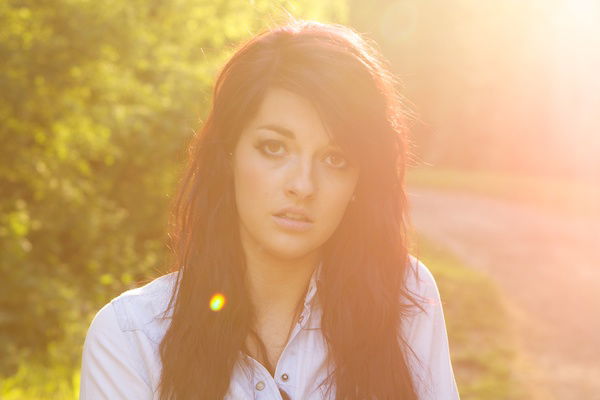
For more great photo background tips, Hot Photography Books
-----------------------------------------------------------------------------------
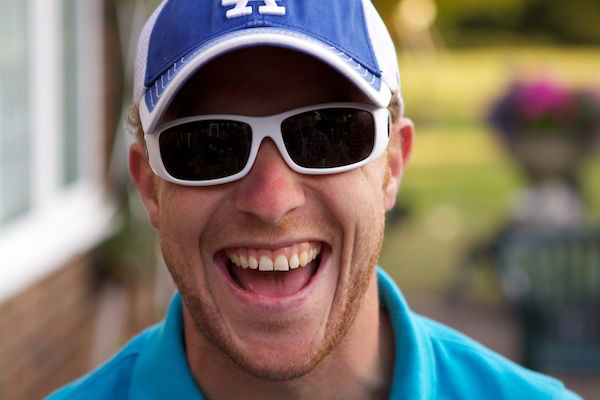
No comments:
Post a Comment
Note: Only a member of this blog may post a comment.